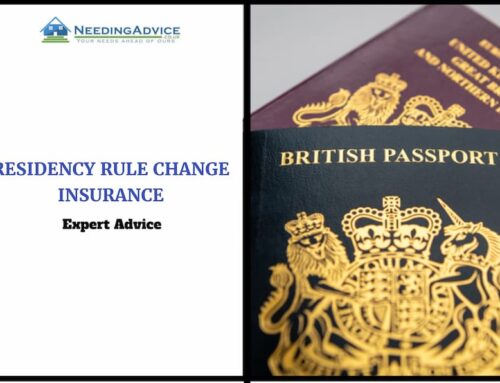Securing a UK residential mortgage requires understanding how affordability checks, credit profiles, income multiples and lending criteria interplay. This guide explains those fundamentals and shows how a whole-life insurance policy can align with both protection planning and mortgage readiness, helping you meet lender expectations and safeguard your home.
1. Mortgage Fundamentals for UK Borrowers
1.1 Affordability checks
Lenders will assess whether you can afford the mortgage now and in the future. Key factors include:
-
Your gross and net income plus any additional income streams.
-
Monthly outgoings such as other loans, credit cards, living costs, childcare, etc.
-
Interest-rate stress testing (often 2–3 % above the offered rate).
-
Budget allowance for future changes (increased interest rates, mortgage term shift).
-
Deposit size and how that affects monthly payment and loan-to-value (LTV).
1.2 Credit profile expectations
Lenders expect you to have:
-
A clean or acceptable credit record (no recent defaultsMissed payments on credit accounts, which can affect a borro..., county court judgments).
-
Registered address history and stable employment or income.
-
Reasonable debt-to-income ratio (other credit commitmentsAny existing financial commitments, such as credit card or l... low).
-
No recent bankruptcies or IVAs (Individual Voluntary Arrangements).
1.3 Income multiples and stress testing
Most UK lenders use income multiples such as:
-
Up to 4.5× your annual income for first-time buyers or standard residential mortgages.
-
Lower multiples (e.g., 3–4×) if self-employed, seasonal income or variable contracts.
They will stress test by applying a higher rate – for example, if your mortgage is at 5 %, they might test at 7 –8 % to ensure you could still afford it.
1.4 Deposit rules and loan-to-value (LTV)
-
Minimum deposit often from 5 % of the purchase price for standard purchase (though newer schemes may vary).
-
Lower LTV (e.g., 75 % or less) usually results in more favourable interest rates.
-
Some schemes require larger deposit or additional criteria (e.g., government-backed or shared-ownership).
1.5 Lending criteria and mortgage products
Residential mortgage lending is regulated in the UK, and you’ll encounter:
-
Fixed-rate mortgages (rate locked for a period, e.g., 2, 5, 10 years).
-
Tracker mortgages (rate tracks the Bank of England base rateThe interest rate set by the Bank of England, affects the in... plus a margin).
-
Variable mortgages (standard variable rateThe interest rate charged by the lender that can vary over t... or lender’s own offer).
-
For buy-to-let (BTL) mortgages, criteria differ (see section 2).
-
Income verification: PAYE, self-employed accounts, tax returns.
-
Credit history checks, property valuation, employment stability, affordability.
1.6 The end-to-end mortgage process
-
Establish budget and deposit size.
-
Check your credit profile, clear manageable debts.
-
Gather required documentation (see section 3).
-
Approach a mortgage adviser or broker and agree mortgage strategy.
-
Submit mortgage application with lender; undergo affordability & valuation checks.
-
Receive mortgage offer; arrange solicitors, surveys, legal checks.
-
Exchange contracts, complete purchase or remortgageRefinancing an existing mortgage with a new mortgage..
-
Manage repayments and review cover (protection, insurance) post-completion.
2. Special Consideration: Buy-to-Let (BTL) Mortgages
When purchasing a property to rent out, lenders expect additional criteria:
-
Rental income must normally cover mortgage repayments by a certain margin (e.g., 125–145 %).
-
Higher minimum deposit (often 25–40 % LTV).
-
Proof of ability to meet voids, repairs, landlord responsibilities.
-
Often requires personal income verification even for principal applicants.
-
Credit profile scrutiny is often more stringent.
3. Insurance & Protection: How it fits with your mortgage
Using appropriate life cover becomes part of your mortgage security and personal protection. A policy designed for lifetime cover (as explained in the original article) can complement your mortgage plan by:
-
Ensuring a lump-sum payout to clear the mortgage in the event of death.
-
Enhancing lender confidence through protection cover in place.
-
Supporting estate-planning or IHT (inheritance tax) strategies should you own property.
Eligibility factors (for protection policies in UK context):
-
Age and health status.
-
Lifestyle (smoking, hazardous hobbies, travel).
-
Amount of cover needed (linked to mortgage size).
-
Term or lifetime cover requirement.
-
Whether cover is to be written into a trust (often used for IHT).
-
Which insurer underwriting criteria apply.
Required documents for cover alongside your mortgage:
-
Proof of identity (passport or driving licence).
-
Address verification (utility bills, bank statementsA record of a borrower's financial transactions often requir...).
-
Medical questionnaire or potential underwriting if required.
-
Income proof (payslips, tax returns, if needed).
-
Mortgage offer documentation linking cover to mortgage.
4. Practical Tips for Your Mortgage & Cover Strategy
-
Start by checking your credit report and resolving any issues before mortgage application.
-
Use a mortgage calculator to estimate monthly payments, not just loan size.
-
Build a realistic budget including stress-tested interest rates.
-
For cover, consider whether term cover linked to the mortgage is sufficient, or whether lifetime cover adds value (especially for property investors or high net worth scenarios).
-
Use a mortgage broker with whole-of-market access who can compare lenders and protection providers.
-
After completionThe point at which a property purchase is finalized and owne..., review your cover annually to align with changes in your mortgage, property value and personal circumstances.
6. Why Use a Mortgage Adviser?
Using a adviser offers significant advantages:
-
Whole-of-market access: an adviser can compare dozens of lenders and products, ensuring you aren’t limited to those visible via direct channels.
-
Tailored advice: advisers will consider your wider protection and insurance position (not just the loan).
-
Streamlined process: they handle documentation, negotiate with lenders, explain complex rules and guide you through legal checks.
-
Value-added support: when combining mortgage and protection advice, you benefit from a single point of contact and better aligned strategy.
-
Compliance and regulation: advisers work within the regulatory framework (Financial Conduct Authority (FCA) in the UK) and ensure you make informed decisions.
7. FAQs
Q1: Can I apply for a mortgage if I have personal protection cover in place?
Yes — having life cover does not prevent you from applying, and may enhance your affordability and security from the lender’s perspective.
Q2: What if I’m self-employed — does that change my mortgage eligibility?
Yes — lenders typically require at least two full years of accounts or SA302 tax returns for self-employed applicants, and may apply more conservative income multiples.
Q3: If I remortgage to a higher loan, should I review my insurance cover?
Yes — if your mortgage increases or term extends, it’s wise to review cover levels so that protection remains aligned with the loan and your obligations.
8. Step-by-Step How-To
How to seek mortgage advice
-
Research and select a credible, FCA-regulated adviser specialising in your region and borrower type.
-
Prepare a brief of your objectives (purchase, remortgage, BTL) and details (income, deposit, property type).
-
Attend a meeting (in-person or virtual) and discuss your budget, credit status, and target mortgage product.
How to apply through an adviser
-
Adviser will compare lenders based on your profile, submit an application and handle initial checks.
-
You’ll receive a mortgage offer subject to valuation and underwriting; sign and return the offer.
How to prepare key documents
-
Gather ID (passport/driving licence), proof of addressEvidence of a borrower's current address, such as a utility ... (utility/bank statement within last 3 months).
-
Provide proof of income: for employees — last 3–6 months payslips and latest P60; for self-employed — last two years’ SA302s or accounts.
-
Bank statements (typically last 3 months) demonstrating regular income and outgoings.
-
Maintain a clean credit file: avoid large new credit commitments or further borrowing between offer and completion.
-
Once offer is accepted, liaise with solicitors, arrange valuations, review terms and ensure insurance cover is in place where required.






Leave A Comment